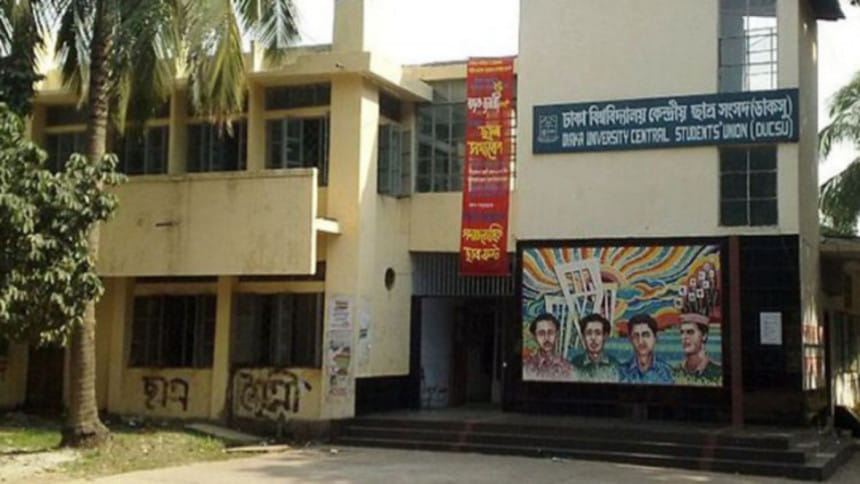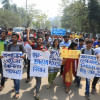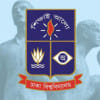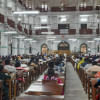Ex-Ducsu leaders pin hope on polls

Some former Ducsu leaders hope that today's election and the leadership it will create will play a positive role in bringing about a qualitative change in the future national politics.
Others remain skeptical about the outcome of the election, however, because they think the campus environment is not favourable for voters.
Those pinning their hope said the platform would revive the tradition of ensuring students' rights. Also, the leadership vacuum in the national politics will be filled in by some of the Ducsu leaders.
Former student leaders, some of whom are now politicians themselves, said the Ducsu elections that were on a hiatus for 28 years would also help student organisations to work independently and follow the path of the glorious past.
“A successful election is my first expectation. Ducsu used to work to ensure the rights of students. Its honour and dignity should be revived,” said Rashed Khan Menon, former Ducsu vice president and president of Workers Party of Bangladesh.
Menon was at the forefront when students took to the streets against the SM Sharif education commission in 1962. The commission proposed the commercialisation of education.
Menon was suspended from the university for five years in 1964 when he was the VP of the Ducsu as he and some others led the students to boycott Dhaka University's convocation, attended by the then Governor of East Pakistan Abdul Monem Khan.
The former minister expects new leadership to do politics for the sake of the students and national interest, and not to spoil the academic atmosphere.
Dhaka University is a residential university, so its characteristics should be upheld, he said. “First year students should get seats in the hall, they need accommodation desperately.”
Another former Ducsu VP Sultan Mohammad Monsur hoped that the Ducsu election would pave the way for future leadership in the country.
Sultan Monsur is the only Chhatra League president who was elected Ducsu VP in 1989-90. He was one of the protestors of the killing of Bangabandhu Shiekh Mujibur Rahman and played role in anti-military movement against dictator HM Ershad.
Sultan, also recently expelled Gonoforum leader and former organising secretary of Awami League, said this platform would make way for congenial co-existence among different student political parties at the university campus and its dormitories.
“Holding central student union elections at different public universities could create patriotic politicians in the country,” said Sultan, also a lawmaker.
Former Ducsu VP Mahfuza Khanam said the new journey of Ducsu after 28 long years will create a scope for students to tap into their latent talent in various fields.
Mahfuza was elected VP in 1966-67. She took active part in the movement against the Hamoodur Rahman Education Commission that made objectionable comments about student politics and organisations.
She also took part in the six-point movement launched by Bangabandhu Sheikh Mujibur Rahman after 1966 to realise autonomy for then East Pakistan.
Most of the Awami league activists were in jail at the time and the task of leading the six-point movement in the Dhaka University devolved under the Ducsu leadership.
Mahfuza, also president of Asiatic Society, said, “I hope resuming the activities of Ducsu will help students enrich their intellectual level, if the new leaders of Ducsu and university authorities can create a good environment on the campus.”
Former Ducsu General Secretary Khairul Kabir Khokon said, “The dominance of businessmen is growing in politics as no new leadership is being produced from Ducsu.”
Kabir was elected Ducsu GS in 1990-91. He was one of the organisers of the anti-Ershad movement in the late 1980s.
Kabir, also the joint secretary general of the BNP, expects new Ducsu leadership to stop the use of muscle power in student politics and ensure the co-existence of all student organisations.
Former Ducsu VP Mahmudur Rahman Manna said at least 56 vice-presidents and general secretaries could have emerged in the country's political arena had the Ducsu elections been held on a regular basis in the last 28 years.
However, Manna, also convener of opposition platform Nagorik Oikya, does not have much expectation from this Ducsu election, as he feels that general students “will not be able to cast their votes in a fearless and fair environment”.
He said the ruling party backed student organisation is controlling all the dormitories, showing muscle power and the general students will not be able to exercise their voting rights freely.
Therefore, the general students' opinions would not be reflected in the election results and the formation of the new Ducsu would be one-sided.
“We cannot expect much from the new journey of Ducsu as the administration has so far failed to ensure a congenial atmosphere for the polls.”


 For all latest news, follow The Daily Star's Google News channel.
For all latest news, follow The Daily Star's Google News channel. 







Comments